|
Books Should Be Free Loyal Books Free Public Domain Audiobooks & eBook Downloads |
|
|
Books Should Be Free Loyal Books Free Public Domain Audiobooks & eBook Downloads |
|
Non-fiction |
|---|
|
Book type:
Sort by:
View by:
|
By: Sarah Morgan Dawson (1842-1909) | |
|---|---|
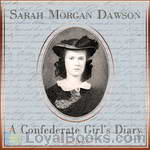 A Confederate Girl's Diary
A Confederate Girl's Diary
Sarah Morgan Dawson was a young woman of 20 living in Baton Rouge, Louisiana, when she began this diary. The American Civil War was raging. Though at first the conflict seemed far away, it would eventually be brought home to her in very personal terms. Her family's loyalties were divided. Sarah's father, though he disapproved of secession, declared for the South when Louisiana left the Union. Her eldest brother, who became the family patriarch when his father died in 1861, was for the Union, though he refused to take up arms against his fellow Southerners... | |
By: William Worthington Fowler (1833-1881) | |
|---|---|
 Woman on the American Frontier
Woman on the American Frontier
Many books describe the role of men during American history. However, at the same time, women did much: comforted, fought, helped, raised children, and much more. This book is full of mini-biographies of women in many places, and many ages- each chapter telling about a different subject. | |
By: James C. Philip (1873-1941) | |
|---|---|
 The Romance of Modern Chemistry
The Romance of Modern Chemistry
A fascinating look back at the state of the art of chemistry 100 years ago, this book by James C. Philip, PhD, an assistant professor of chemistry at The Imperial College of Science and Technology, Kensington, provides a "description in non-technical language of the diverse and wonderful way which chemical forces are at work, and their manifold application in modern life" in 1910. Professor Philip relates many of the key chemical discoveries of early academic researchers in the context of the practical uses to which these discoveries were applied in the early 20th century. | |
By: Mildred Duff (1860-1932) | |
|---|---|
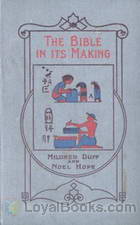 The Bible in Its Making - The Most Wonderful Book in the World
The Bible in Its Making - The Most Wonderful Book in the World
One great universal law runs through the realm of nature. Our Saviour gave it in a sentence: 'First the blade, then the ear, after that the full corn in the ear.' It is with the desire to show that the same law rules in another of God's creations — The Bible — that this little volume has been prepared. The Bible has as literally 'grown' as has an oak tree; and probably there is no more likeness between the Bible as we know it to-day and its earliest beginning, than we find between the mighty tree, and the acorn from which it sprang... | |
By: George Edward Moore | |
|---|---|
 Principia Ethica
Principia Ethica
George Edward Moore, usually known as G. E. Moore, (1873 – 1958) was a distinguished and influential English philosopher. He was, with Bertrand Russell, Ludwig Wittgenstein, and (before them) Gottlob Frege, one of the founders of the analytic tradition in philosophy. Principia Ethica is one of the standard texts of modern ethics. | |
By: John Casper Branner | |
|---|---|
 A Brief Grammar of the Portuguese Language
A Brief Grammar of the Portuguese Language
Dr. Branner was a recognized authority on the geology of South American republics, especially Brazil, having organized and headed the Stanford Expedition to Brazil in 1911, among others. In 1910 he published this "little book", as the author himself calls it, for the use of English-speaking students who needed a fast and practical way of learning Portuguese. Contrary to the belief of many back then, John C. Branner claims that Brazilian Portuguese isn't "badly spoken Portuguese", and, even though using examples from both Portuguese and Brazilian writers, seems to give more proeminence to Brazilian Portuguese. | |
By: G. S. Street (1867-1936) | |
|---|---|
 The Ghosts of Piccadilly
The Ghosts of Piccadilly
Nothing spooky or supernatural, but a very personal gathering of gossip, letters, and fragments of biography of famous people who have lived in Piccadilly (in London, England) ... and of some of the buildings, now long gone."If any part of any city deserves a book to itself, it is Piccadilly. We shall stand before some house in the hours when the traffic is stilled, and I shall tell of its history, of the men and women who dwelt there, and talked and loved and gambled and lived and died. I shall follow the lines of my temperament and tastes rather than those of completeness and impartiality: it is likely that I shall be voluble about Byron and reticent about Macaulay." (From the preface) | |
By: William Hanford Edwards | |
|---|---|
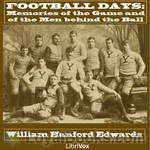 Football Days: Memories of the Game and of the Men behind the Ball
Football Days: Memories of the Game and of the Men behind the Ball
A book reminiscent of the days when football was gaining popularity in America by MHAIJH85 | |
By: Anne Catherine Emmerich (1774-1824) | |
|---|---|
 The Nativity of our Lord Jesus Christ
The Nativity of our Lord Jesus Christ
Anne Catherine Emmerich (1774-1824) was a German Augustinian nun who had visions about Christ's life and death. This book relates her visions regarding the Blessed Virgin Mary, from her marriage to St. Joseph to the events surrounding the birth of Christ.(Introduction by Ann Boulais) | |
By: Annie Besant (1847-1933) | |
|---|---|
 Annie Besant
Annie Besant
In her autobiography, Annie Besant poignantly writes of her search for the truth of what she believed in, leaving Christianity behind to embrace Atheism, and ultimately finding her peace in Theosophy, which she became interested in after meeting Helena Blavatsky. She moved to India to better study Theosophical ideas and this is where she made her home until her death. She was a gifted orator and writer, often speaking and writing on her religious beliefs, as well as women's rights and social reform... | |
 My Path to Atheism
My Path to Atheism
My Path to Atheism is a remarkable document in many ways, not least that it was written by a woman in Victorian England, not the most open free-thinking of societies, especially for women at that time. It needed a remarkable woman to write such a revolutionary and to 19th century minds, heretical document in a society where the Church had such a stronghold. Besant herself was originally married to a clergyman, but her increasingly anti-religious views and writings led to a legal separation. She went... | |
By: Dorothy Osborne (1627-1695) | |
|---|---|
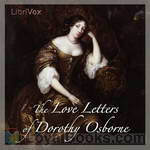 Love Letters of Dorothy Osborne
Love Letters of Dorothy Osborne
A lively, interesting and important collection of 17th century love-letters written by an English lady, against the background of the Civil War and the Restoration | |
By: Archibald Williams | |
|---|---|
 How it Works Dealing in simple language with steam, electricity, light, heat, sound, hydraulics, optics, etc., and with their applications to apparatus in common use
How it Works Dealing in simple language with steam, electricity, light, heat, sound, hydraulics, optics, etc., and with their applications to apparatus in common use
| |
By: Jacob A. Riis (1849-1914) | |
|---|---|
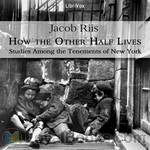 How the Other Half Lives: Studies Among the Tenements of New York
How the Other Half Lives: Studies Among the Tenements of New York
How the Other Half Lives: Studies Among the Tenements of New York (1890) was a pioneering work of photojournalism by Jacob Riis, documenting the squalid living conditions in New York City slums in the 1880s. It served as a basis for future muckraking journalism by exposing the slums to New York City’s upper and middle class. The title of the book is a reference to a phrase of François Rabelais, who wrote in Pantagruel: "one half of the world does not know how the other half lives". | |
By: Rolf Boldrewood (1826-1915) | |
|---|---|
 Shearing in the Riverina
Shearing in the Riverina
| |
By: Paul Ehrlich (1854-1915) | |
|---|---|
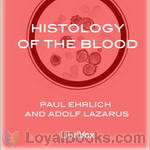 Histology of the Blood
Histology of the Blood
This is a textbook on the science of blood and bloodwork by (1908) Nobel Prize winner, Dr. Paul Ehrlich. Should appeal to hematologists, phlebotomists, and just plain folks interested in how our bodies work. | |
By: Jacob William Wright | |
|---|---|
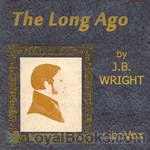 The Long Ago
The Long Ago
Short memory of boyhood by a little-known American poet based in Carmel-By-The-Sea, California. | |
By: Anne MacLanahan Grenfell (1885-1938) | |
|---|---|
 Le Petit Nord
Le Petit Nord
A collection of letters from Anne (MacLanahan) Grenfell, future wife of Sir Wilfred Grenfell, regarding her year of missionary service at the orphanage in St. Anthony, Newfoundland and Labrador, Canada. | |
By: Frances Sheridan | |
|---|---|
 Memoirs of Miss Sidney Bidulph
Memoirs of Miss Sidney Bidulph
Sidney and Cecilia are best childhood friends who are forced to part for 5 years. In that interval, Sidney Bidulph - an undoubtedly good and dutiful woman - writes to her friend about everything: her marriage, her children, her other friendships and, above all, about her great love for Mr. Faulkland. In an amazing and unforgettable way, this book shows us that the road to happiness is not always clear - and that sometimes doing what seems to be right is not really the right thing to do. With Rachel's lovely reading, we see her - Sidney Bidulph - as she was meant to be, and as she really is. | |
By: editor: Frank Munsey | |
|---|---|
 The Scrap Book Sampler
The Scrap Book Sampler
18 works -- two non-fic articles & one short fiction or poetry each -- from issues March, April, May, June, July, & August 1906 of The Scrap Book, Volume 1, edited by Frank Munsey. As he states in the editorial of the April 1906 issue (Vol 1, Iss 2) this was a sort of supplement to the editor's popular monthly, Munsey's Magazine. The Scrap Book is very like an American version of Punch with many short, often humorous articles interspersed with at least one short story, some poetry, and several longer non-fic pieces. The Scrap Book ran up to 1922. | |
By: Thomas Dowler Murphy (1866-1928) | |
|---|---|
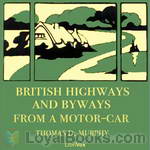 British Highways And Byways From A Motor Car
British Highways And Byways From A Motor Car
In this chronicle of a summer's motoring in Britain I have not attempted a guide-book in any sense, yet the maps, together with the comments on highways, towns, and country, should be of some value even in that capacity. I hope, however, that the book, with its many illustrations and its record of visits to out-of-the way places, may be acceptable to those who may desire to tour Britain by rail or cycle as well as by motor car. Nor may it be entirely uninteresting to those who may not expect to visit the country in person but desire to learn more of it and its people. (Introduction by Thomas Dowler Murphy) | |
By: Edward S. Ellis (1840-1916) | |
|---|---|
 The Life of Kit Carson
The Life of Kit Carson
Christopher Carson, or as he was familiarly called, Kit Carson, was a man whose real worth was understood only by those with whom he was associated or who closely studied his character. He was more than hunter, trapper, guide, Indian agent and Colonel in the United States Army....His lot was cast on the extreme western frontier, where, when but a youth, he earned the respect of the tough and frequently lawless men with whom he came in contact. Integrity, bravery, loyalty to friends, marvelous quickness... | |
By: William Jackson | |
|---|---|
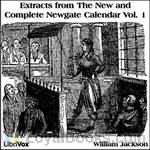 Extracts from The New and Complete Newgate Calendar
Extracts from The New and Complete Newgate Calendar
Volume One of the New and Complete Newgate Calendar, covering the years 1700 through 1723, relates stories of British trials, the persons accused and the crimes committed. It is primarily based upon contemporary newspaper and pamphlet accounts of these trials. Where the criminal is particularly well known, such as the highwayman, burglar and escape artist Jack Sheppard, other sources were used as well. The readings used here are selected to illustrate different aspects of the eighteenth century criminal world and the British legal system. | |
By: Marie Curie (1867-1934) | |
|---|---|
 Radioactive Substances
Radioactive Substances
Marie Curie, born in Warsaw in 1867, was a French physicist and chemist famous for her work on radioactivity. She was a pioneer in the field of radioactivity and the first person honored with two Nobel Prizes - in physics (1903) and chemistry (1911). The risks of working with strongly radioactive materials were not known at that time, and she eventually died in 1934 from an illness likely caused by radiation poisoning.Radioactive Substances is the thesis of Marie Curie, presented to the Faculté de Sciences de Paris in 1903, and subsequently published in "Chemical News" vol 88, 1903... | |
By: John Addington Symonds (1840-1893) | |
|---|---|
 A Problem in Modern Ethics
A Problem in Modern Ethics
“Society lies under the spell of ancient terrorism and coagulated errors. Science is either wilfully hypocritical or radically misinformed.” John Addington Symonds struck many an heroic note in this courageous (albeit anonymously circulated) essay. He is a worthy Virgil guiding the reader through the Inferno of suffering which emerging medico-legal definitions of the sexually deviant were prepared to inflict on his century and on the one which followed. Symonds pleads for sane human values in... | |
By: Alfred Dreyfus (1859-1935) | |
|---|---|
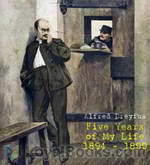 Five Years of My Life 1894-1899
Five Years of My Life 1894-1899
Alfred Dreyfus, a Jewish captain in the French Army was court martialed in 1894 on a trumped up charge of treason and condemned to life imprisonment on Devil’s island, a penal colony off French Guiana. His prison diary, published as Five Years of My Life in 1901 is a heroic tale of survival against daunting odds: isolation, deprivation, torture . . Alfred left behind in Paris his wife Lucie, who, forbidden to join her husband in exile, struggled to protect their two children from the rampant anti-Semitism that swirled about them, while she begged her husband to hold onto life as she tried to clear his name... | |
By: Joseph Munk (1847-1927) | |
|---|---|
 Arizona Sketches
Arizona Sketches
An introduction to Arizona from approximately a century ago. | |
By: George Douglas Watson (1845-1924) | |
|---|---|
 Soul Food
Soul Food
A guide for Christians to walk a godly life. Covering various practical and spiritual topics. | |
By: Albertus Magnus (1193-1280) | |
|---|---|
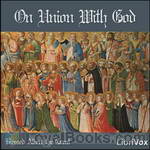 On Union With God
On Union With God
Surely the most deeply-rooted need of the human soul, its purest aspiration, is for the closest possible union with God. As one turns over the pages of this little work, written by Blessed Albert the Great towards the end of his life, when that great soul had ripened and matured, one feels that here indeed is the ideal of one's hopes. (From the Preface) | |
By: Percy Fitzpatrick | |
|---|---|
 The Outspan: Tales of South Africa
The Outspan: Tales of South Africa
Six poignant short stories reminiscent of life as a transport rider in the Transvaal veld in the days of the gold rush in South Africa at the end of the 19th century. From an early age Fitzpatrick believed that life should be enjoyed to the full and his honest and often moving style of writing leaves one richer for having known him. | |
By: William H. (William Harrison) Ukers (1873-1945) | |
|---|---|
 All About Coffee
All About Coffee
| |
By: Charles E. Jefferson (1860-1937) | |
|---|---|
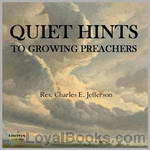 Quiet Hints to Growing Preachers
Quiet Hints to Growing Preachers
Charles Edward Jefferson was pastor of the Broadway Tabernacle in Brooklyn, New York for 33 years. In Quiet Hints, published in 1901, he provided guidance to young preachers on what we would today call ministerial deportment, an old-fashioned word that refers to how a man carries himself, how he presents himself, his manners, his bearing, his habits, and his whole approach to life. Jefferson wrote in short, pithy statements that encapsulate practical truth in just a few words. | |